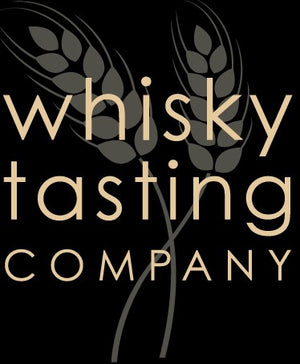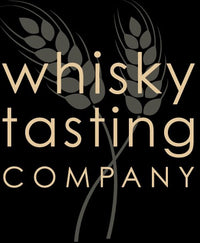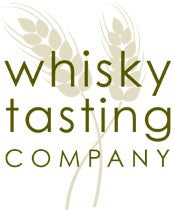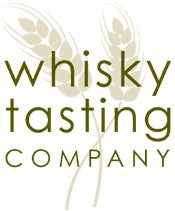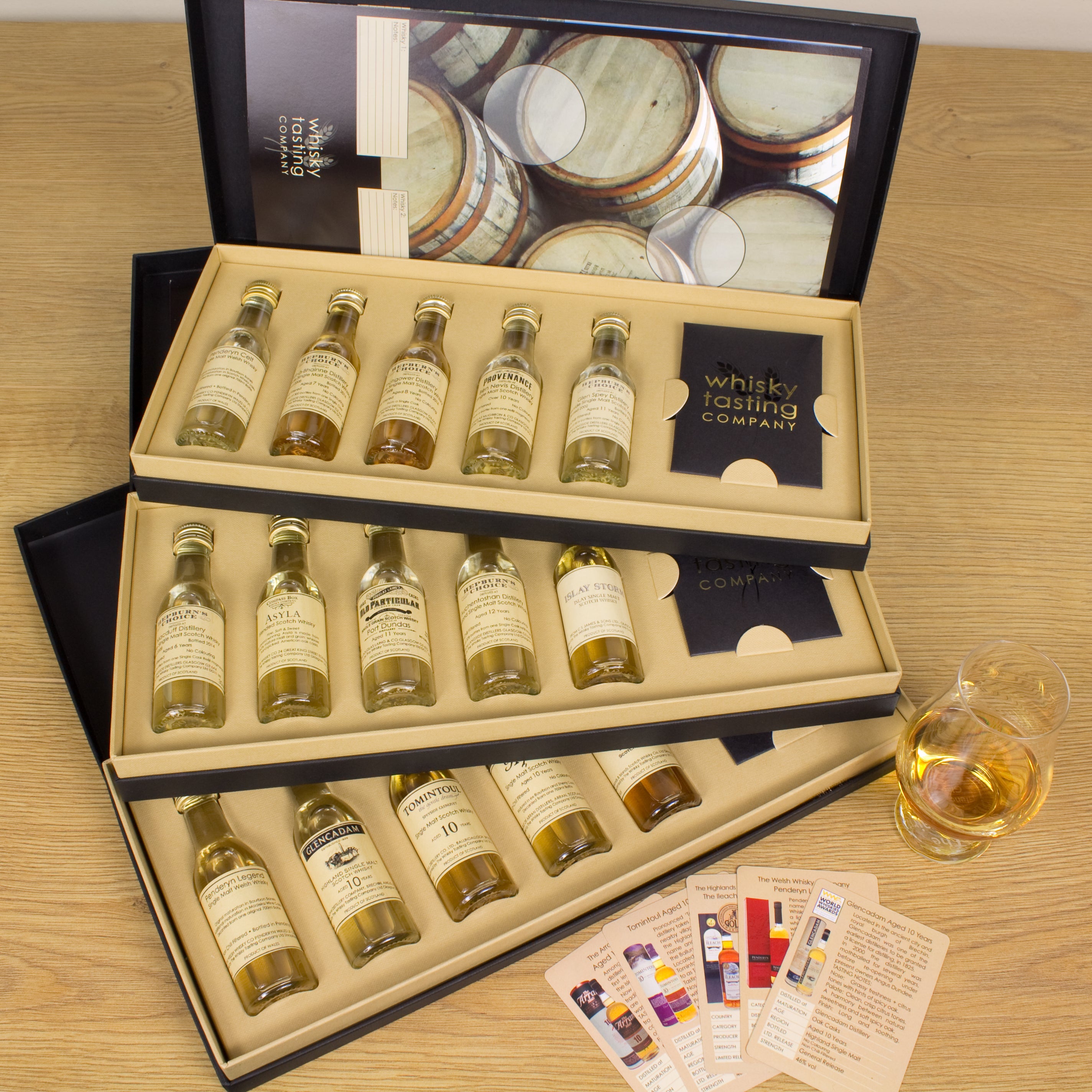Scotch vs bourbon – is there a difference?

Scotch and bourbon.
Both dark spirits. Both made from grains. Both aged in oak barrels.
You’d be forgiven for thinking they’re the same thing – but they’re not.
Whilst these two popular tipples are both whiskies and they do have a lot in common, there are actually many differences between them. In fact, they don’t even spell ‘whisky’ the same way – for scotch, it’s spelt whisky, whereas bourbon whiskey includes an extra ‘e’.
So before you pick one at random off the supermarket shelf, make sure you know your Finlaggan and Tomintoul from your Jim Beam and Woodford Reserve. Here we cover the main factors that differentiate these distant cousins of the whisky world.
Location
Scotch
No surprise here. Scotch whisky comes from Bonnie Scotland (said in our best Scottish accent).
To be officially classed as ‘scotch’, it has to adhere to a set of certain rules. For example, it must be distilled in Scotland using only cereals, water and yeast, matured in Scotland for at least 3 years and bottled (you guessed it) in Scotland at 40%. These rules aren’t just for guidance, they’re the law!
Bourbon
A quick hop, skip and jump over the water. Bourbon whiskey comes from the United States.
Around 95% of all bourbons are made in Kentucky, as the limestone water found in this southeastern state is perfect for filtering out impurities. But technically, it can be made anywhere in America.
That doesn’t mean all US whiskies are bourbon – think rye, tennessee, single malts… It just means the rules on its production location are a little more relaxed than scotch!
Ingredients
Scotch
There isn’t any room for manoeuvre.
In Scotland, barley is the dominant grain. Single malts have to be made with 100% barley to be classed as a single malt, whereas grain whiskies can be made from a combination of malted or unmalted barley, plus other grains – usually wheat.
Bourbon
Bourbon, on the other hand, is made primarily from corn (maize).
According to the official regulations, all bourbon whiskies must be made with a basic recipe (mash bill) of at least 51% corn – with the remainder made up of rye, wheat, barley and other grains.
Some brands choose to use more, but 51% is the legal minimum.

Distillation
Scotch
Scotch can be distilled up to a maximum of 94.8% ABV. This allows it to retain the flavours and aromas derived from its raw materials. Subsequently, it is then diluted to make it more palatable.
The exact method of distillation depends on the type of scotch.
Single malts are typically double (or sometimes triple) distilled in copper pot stills, whilst most grain whiskies are distilled in a column still. But like with most things, there are a few exceptions to this rule – such as the complicated ‘2.81’ system used at Mortlach Distillery in Speyside.
Bourbon
Bourbon can be distilled up to a maximum of 80% ABV – so slightly lower than scotch.
It also differs in its distillation. Almost all bourbon whiskies are first distilled in a column still, before undergoing a second distillation in a modified copped pot – known as a ‘doubler’ or ‘thumper’.
Ageing process
Scotch
Scottish distilleries have quite a lot of freedom when it comes to ageing their drams.
For it to be legally recognised as a ‘scotch’, the liquid must be matured for a minimum of 3 years in oak casks. However, those casks don’t need to be brand new – it’s perfectly fine for distilleries to use old casks that formerly contained wine, port, cognac or even bourbon.
In fact, this is often preferred, as it can add to the whisky’s complex flavour profile.
Bourbon
For US distilleries, things are a little more restricted.
Bourbon can only ever be matured in brand-new, charred oak casks. Having been used once, casks are no longer suitable – and, in most cases, they’re subsequently sold to producers in Scotland.
For most bourbon whiskies, there isn’t a specified maturation time for it to be recognised as ‘bourbon’ – except for straight varieties, which must be left for at least 2 years. But it’s worth noting, due to the warmer temperatures in America (compared to wet and wild Scotland!), evaporation rates are much higher – which means bourbon matures about twice as fast as scotch.
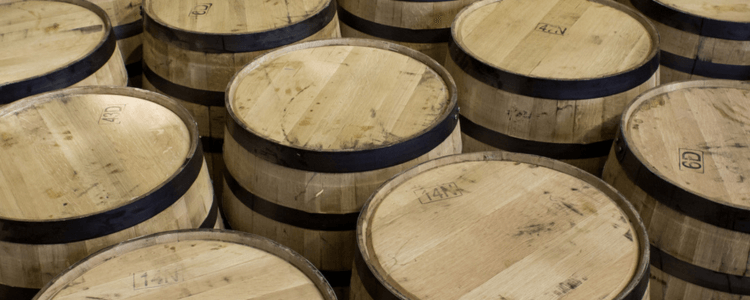
Flavour
Scotch
Scotch flavour profiles can vary significantly, depending on the region and distillery where it is made. However, as a general rule of thumb:
- Speyside whiskies are known for being sweet and fruity.
- Lowland whiskies are usually smooth and gentle, with notes of toffee, ginger and cinnamon.
- Campbeltown whiskies tend to have a salty, maritime character.
- Islay is acclaimed for its heavily-peated drams.
- Highland whiskies range from being full-bodied, sweet, and rich to subtle and oaky or even light and fruity.
Bourbon
Bourbon whiskies also differ in taste and aroma depending on where they’re produced.
However, they’re generally sweeter than scotch – often displaying notes of toffee and cinnamon. And the higher the proportion of corn in the mash bill, the sweeter the final spirit tends to be.
Scotch vs bourbon – which is better?
That’s a bit like asking, which is better – Scottish haggis or Kentucky fried chicken?
There really isn’t a right or wrong answer, because it simply comes down to personal preference. Only your tastebuds can tell you which is your favourite style, so the easiest way to find out is by trial and error. The perfect excuse to enjoy an afternoon of scotch vs bourbon tasting with friends.
Here at Whisky Tasting Company, admittedly, we are slightly biased.
Although we are partial to the odd bourbon, scotch is our no.1 love. Which is why, most of our whisky tasting sets predominantly feature drams from the land of the brave – and we even have a specific set that’s dedicated to our absolute favourite Scottish tipples.
Available for just £27.95, this Scotch Whisky Tasting Set features five aged varieties from across the Highlands, Speyside and Islay whisky malt regions of Scotland, including:
- Arran Barrel Reserve Highland Single Malt
- Tomintoul Aged 10 Years
- Speyburn Aged 10 Years
- Old Pulteney Aged 12 Years
- Finlaggan Islay Single Malt
These come presented in a branded box, with individual tasting cards – containing interesting facts and information about the whiskies and their distilleries, plus the key tastes, flavours and aromas to look out for. Perfect for extending your whisky repertoire and adding to your knowledge of scotch.

For a more experienced drinker, we also have a selection of other premium tasting sets which focus on delicious spirits from Scotia – including our Peaty and Islay Whisky Tasting Set, Premium Scotch Whisky Gift Set and Old and Rare Scotch Whisky Gift Set.
So, why not order the one that appeals to you the most? Give our most prized scotch whiskies a go and let us know what you think. Simply tag us on social media using @WhiskyTastingCo.
If you’re still not 100% clear on the difference between scotch and bourbon or would like to chat about the scotch whisky tasting sets available in our store, you’re also welcome to contact us. Just give us a call on 01743 247220 or fill out our online enquiry form.
Scotch is our passion and main area of expertise, and we’re always happy to help.
